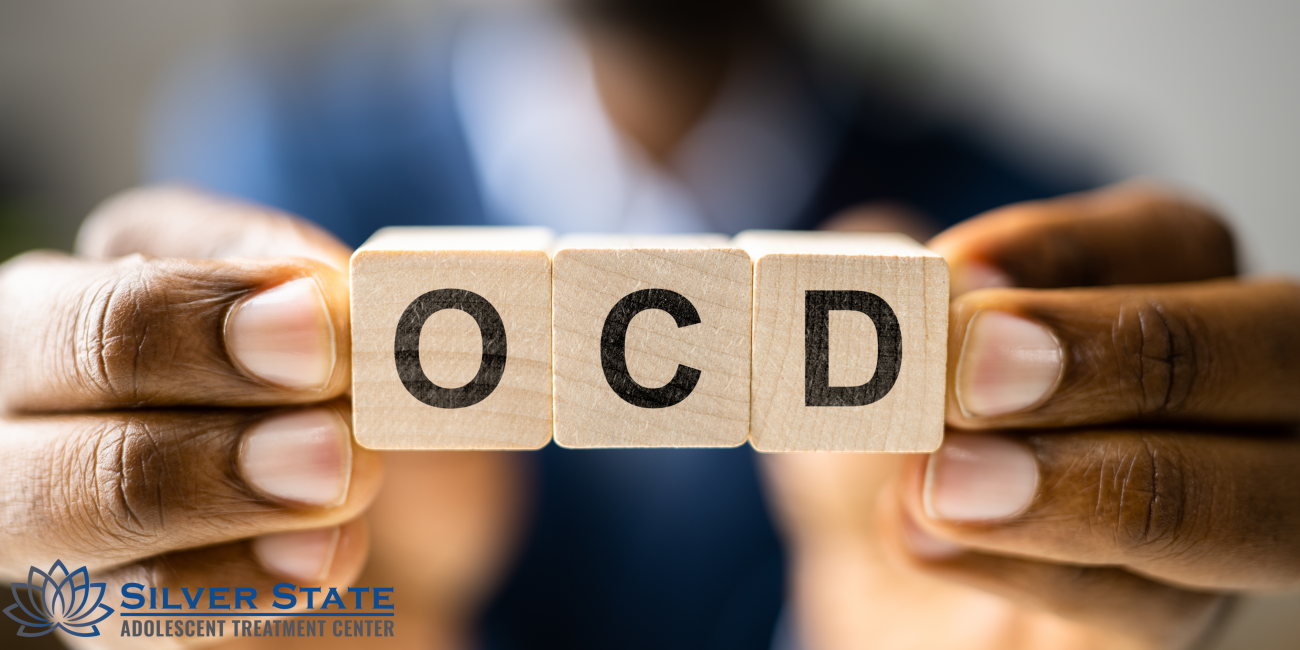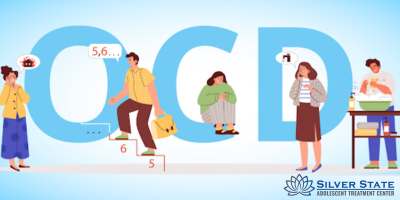Warning Signs of Teen OCD You Should Never Overlook

Table of Contents
Key Takeaways:
- Recognizing the early indicators of teen OCD helps stop long-term problems with their academic, social, and emotional growth.
- Add teen treatment near me and Las Vegas teen treatment near me to your list of alternatives for community-specific help.
- Teen OCD can be managed with professional therapy (CBT, ERP, and medication).
- Combining individual therapy with meditation helps children learn how to manage their problems and become more emotionally resilient.
Introduction
Obsessive-Compulsive Disorder in teens is more than simply a phase or a quirk; it’s a mental illness that causes constant, unwanted thoughts (obsessions) and actions (compulsions) that make it hard to live normally. Teen OCD is what people call it when these symptoms first appear in teens. It’s crucial to catch it early so it doesn’t worsen.
Parents, teachers, and teens themselves should be aware that what appears to be excessive hand-washing, continual checking, or strict routines may not just be a matter of strong preferences; they could be signs of deeper unhappiness. Recognizing these warning signals early gives kids a chance to seek help and recover, allowing them to return to healthy growth and daily life.

What Are the Signs You Should Never Ignore?
1. Anxious and Intrusive Thoughts
Teen OCD is known for having unwelcome, recurrent thoughts. These can include concerns about contamination (such as fear of germs), injury (such as fear of accidentally hurting someone), or religious or spiritual topics that are not permitted. Teens may think these thoughts are shameful or crazy, yet they often feel like they can’t get rid of them.
2. Repetitive Actions that Get in the Way of Life
To feel better, teens could do things like wash their hands excessively, count, check locks repeatedly, or arrange things in a way that makes them look even. These rituals can consume a significant amount of time—sometimes an hour or more every day—and interfere with education, social activities, or sleep.
3. Decline in School and Social Life
As obsessions and impulses intensify, teens may skip assignments, avoid social interactions, or struggle with concentration. Parents and teachers may notice that their child’s grades suddenly drop, they are reluctant to participate in group activities, or their attitude changes in ways that are noticeable, such as becoming irritable or experiencing low self-esteem.
4. Trying to Control or Avoid
To avoid triggers, many teens will avoid bathrooms to avoid anxiety, overwashing their hands, or refusing to touch things that are often touched. Some people may develop perfectionist habits about cleanliness or order and become anxious at the smallest change.
5. Feeling Bad Even When You Know It’s Not True
It’s important to remember that kids with OCD usually know their anxieties aren’t real, yet they feel like they can’t stop. This inner struggle often causes guilt, secrecy, and a cycle of distress and denial, which is why many teens hide their symptoms from friends and family.
When Should You Seek Professional Help?
If you see many of the indications above for more than six weeks and they are having a big effect on your teen’s life, it’s time to get professional help. Therapy can stop the disease from getting worse and help people get better.

What Are the Most Effective Treatments for Teen OCD?
1. What Is OCD in Teens?
This goes into further detail about the criteria, symptoms, and clinical assessments that are specific to teenage OCD. It also talks about diseases like Pediatric Acute-onset Neuropsychiatric Syndrome (PANS), which can make symptoms worse quickly following infections like strep throat. The National Institute of Mental Health also provides a comprehensive overview of OCD and its signs.2. Teen Individual Therapy Treatment
Research backs up individual therapy, especially Cognitive Behavioral Therapy (CBT) with Exposure and Response Prevention (ERP), as the best way to treat teens. Research shows that CBT alone or with SSRIs works quite well and is good for teens, which is why many Las Vegas teen treatment programs emphasize this approach..3. Teen Meditation Therapy Treatment
Meditation isn’t a treatment for OCD on its own, but it can help kids deal with worry and stress that make OCD symptoms worse. Mindfulness approaches, according to University of Rochester Medical Center improves emotional resilience and stress management when used in addition to structured treatments like CBT and ERP.How Can I Find Help Near Me?
If you live in or near Las Vegas or Henderson, you might want to look for teen treatment near me or Las Vegas teen treatment near me to find local specialists who are familiar with treating OCD in teens. Community-based clinics, mental health centers, and treatment programs often customize their services to meet the specific requirements of youth. They include therapy methods like ERP, mindfulness, and family engagement, which are all important parts of a successful recovery.Silver State Adolescents, in particular, offers a wide range of solutions for teens, combining individual treatment with meditation support and strong professional knowledge.
What Does a Full Treatment Pathway for Teen OCD Look Like?
A good Treatment approach for juvenile OCD usually includes:- Evaluation and Diagnosis: Trained professionals use standardized tests, such as the Children’s Yale–Brown Obsessive–Compulsive Scale (CY–BOCS), to determine how bad the condition is.
- Individualized Therapy: Therapists help kids face their concerns without giving in to their compulsions by using CBT and ERP.
- Medication: SSRI antidepressants can work, especially for moderate to severe cases, and teens are closely watched while they take them.
- Mindfulness, Psychoeducation, and Family Sessions: These are helpful for managing anxiety, increasing understanding, and letting families support treatment.
- Ongoing Monitoring: Regularly checking in ensures that symptoms stay under control and that therapy is changed when necessary.
Last Thoughts
Recognizing teen OCD early greatly increases the odds of getting better. Teenagers can get rid of intrusive thoughts and take back their life with the right mix of Teen Individual Therapy Treatment, collaborative care, and organized exposure. A full approach that includes supportive practices like mindfulness works to give adolescents a chance to be healthy.Teens with OCD can get better with early, tailored treatment that includes mindfulness and expert help. If you or someone you know is showing these signs, don’t wait to get help. Contact Silver State Adolescents us atTel: 725.525.9897to set up a private meeting.What Are the Overlapping Signs of Teen OCD and Anxiety That Parents Should Watch For?
Understanding the nuances of mental health is vital for parents. Recognizing teen anxiety signs can be crucial. Symptoms such as excessive worrying, avoidance of social situations, and compulsive behaviors are often indicators of both OCD and anxiety. Early intervention can help manage these overlapping issues effectively. Stay vigilant to support your teen.
FAQs
Q1: What age do most teens have OCD? OCD symptoms usually show up between the ages of 9 and 14Q2: Can medication alone effectively cure OCD in teens? SSRIs and other medications can assist, but studies show that the best results come from using both medication and cognitive behavioral therapy (CBT) with exposure and response prevention (ERP).Q3: How can I tell the difference between normal teenage perfectionism and OCD? Teen perfectionism is severe, but it doesn’t have the cycle of anxiety release that OCD has. OCD rituals are repeated, take a long time, and are caused by upsetting thoughts.Citations:
National Institute of Mental Health. Obsessive-Compulsive Disorder (OCD). December 2024, https://www.nimh.nih.gov/health/topics/obsessive-compulsive-disorder-ocd University of Rochester Medical Center. Obsessive-Compulsive Disorder (OCD). https://www.urmc.rochester.edu/encyclopedia/content?contentid=P01628&contenttypeid=90 MedlinePlus. Teen Mental Health. March 2024,https://medlineplus.gov/teenmentalhealth.htmlUniversity of Utah Health. Obsessive-Compulsive Disorder. March 2024,https://healthcare.utah.edu/hmhi/conditions/obsessive-compulsive-disorder

